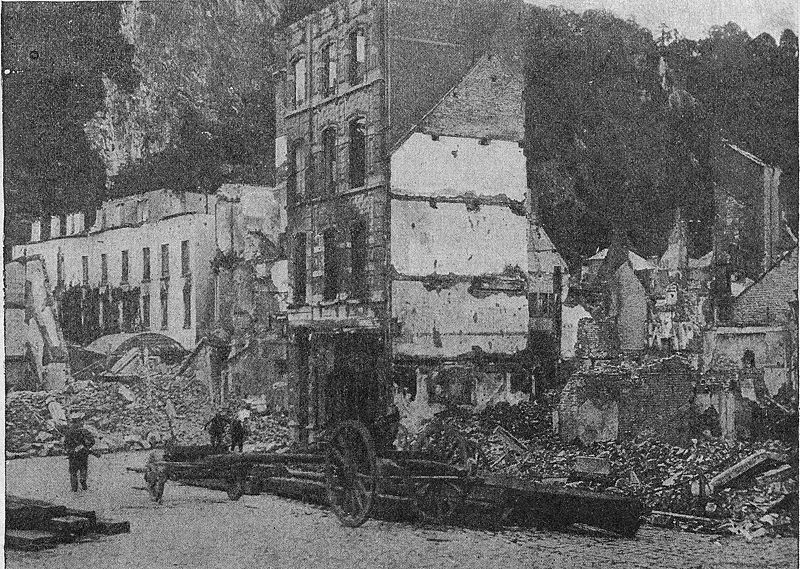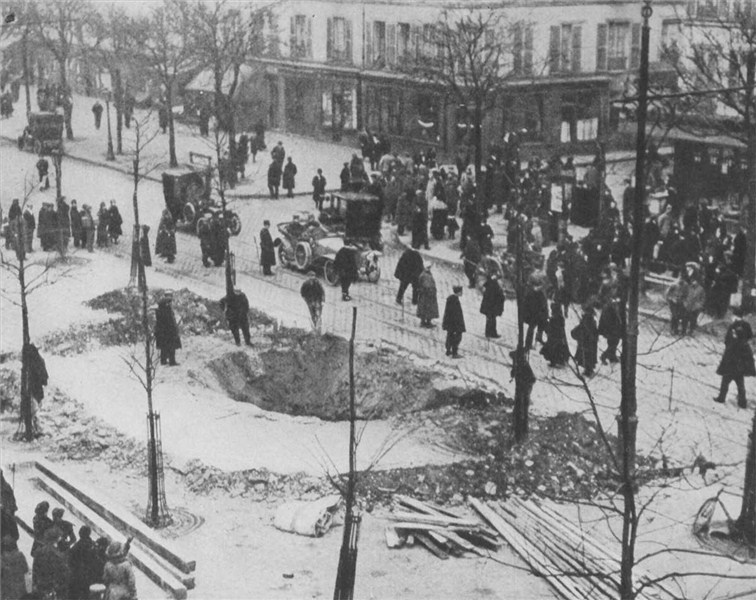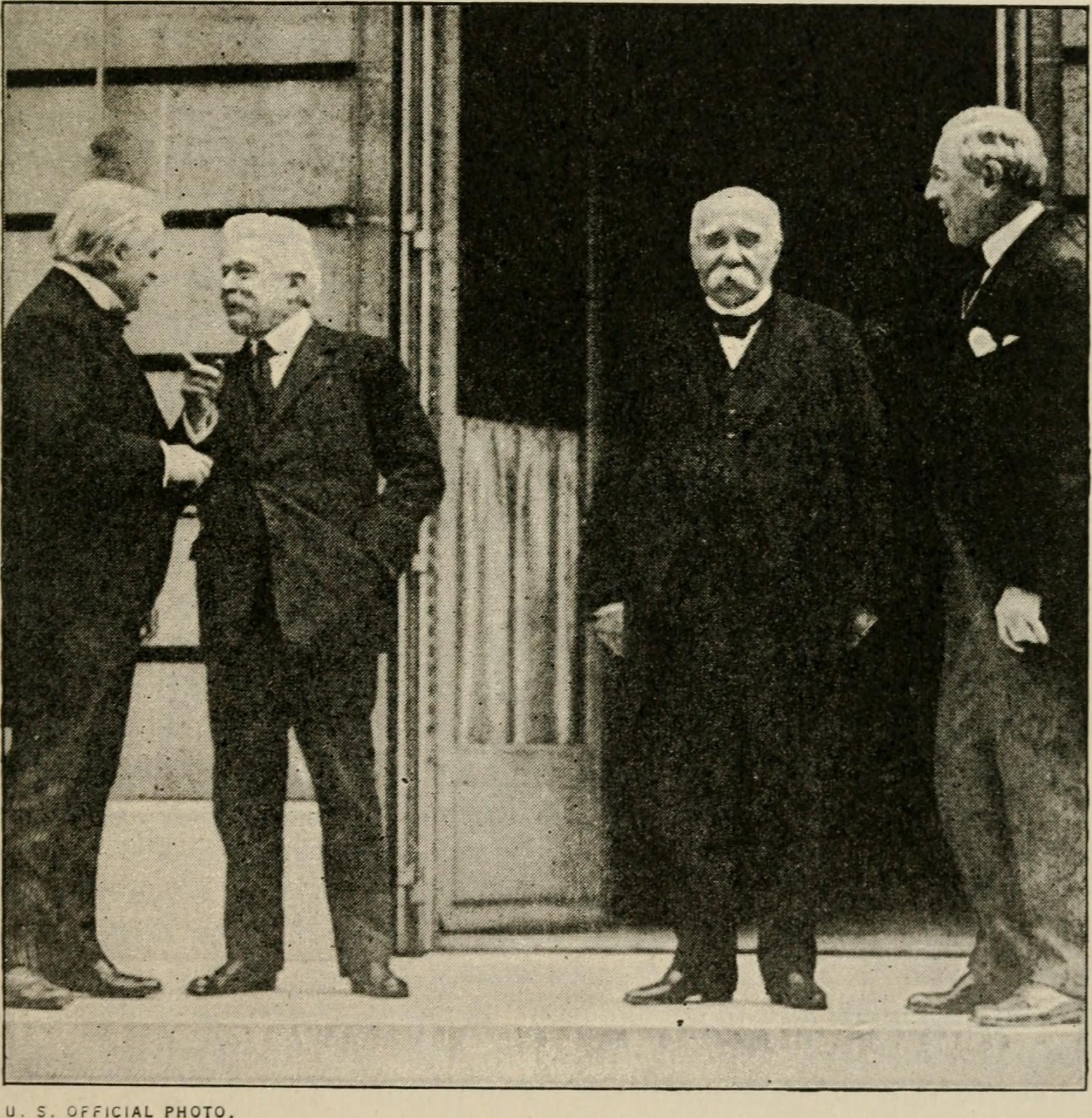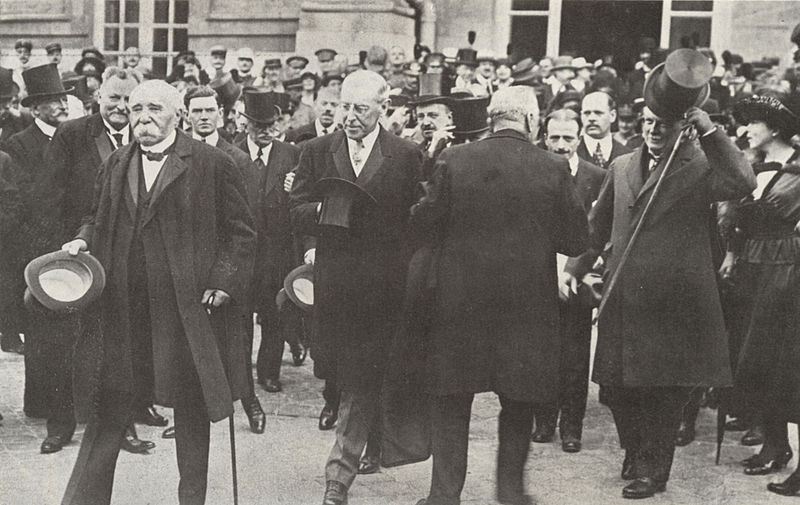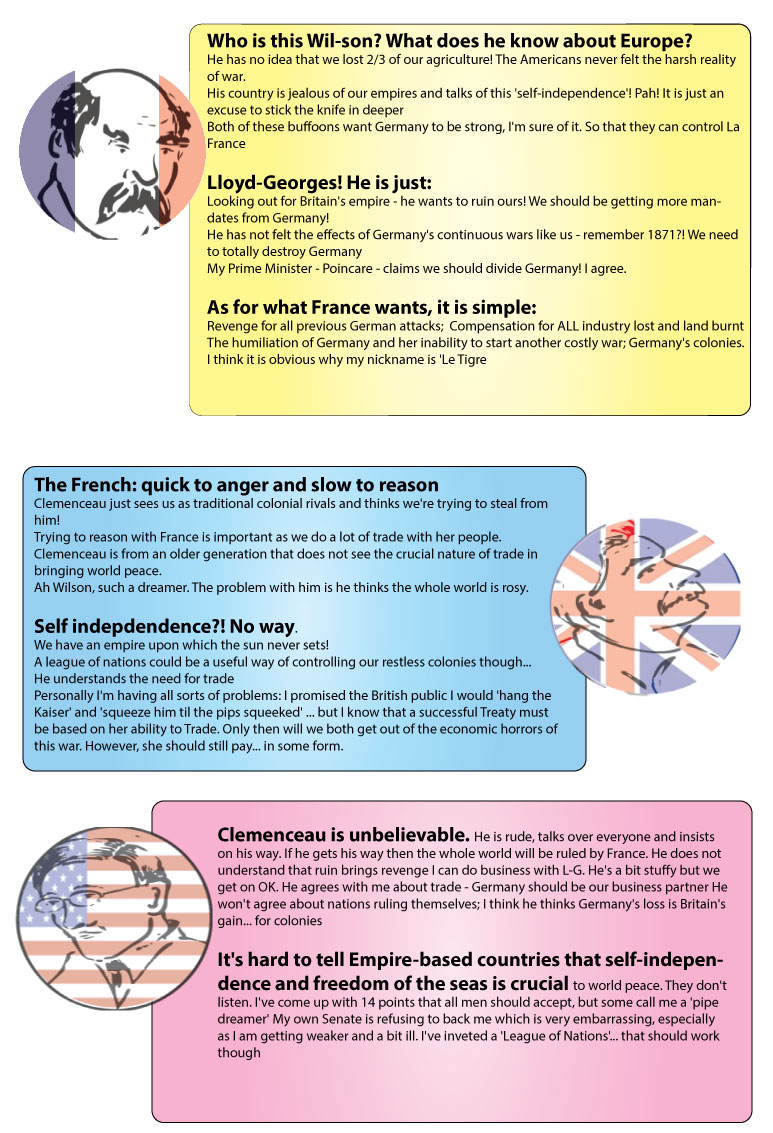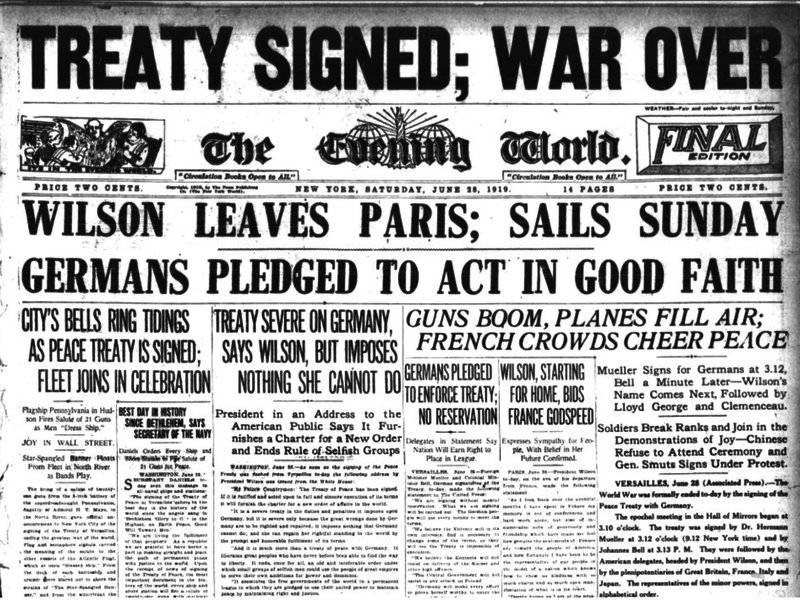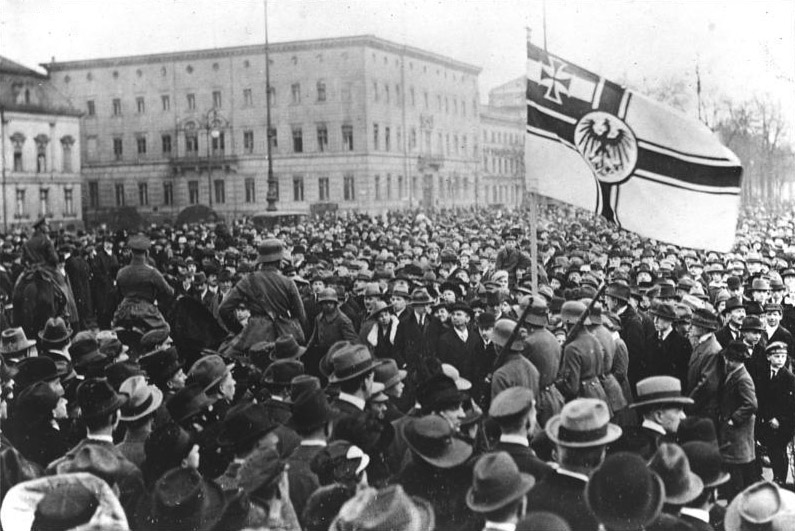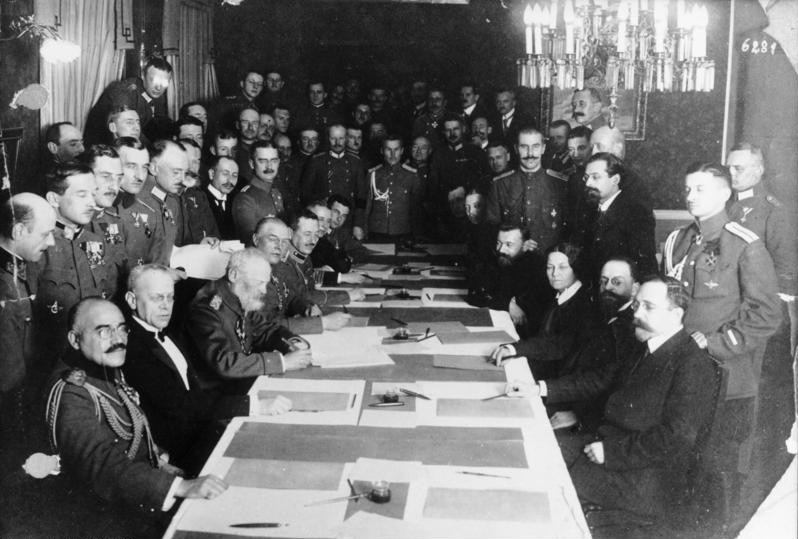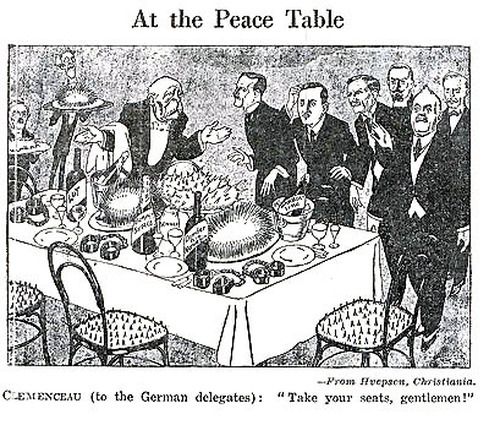Terms of the Treaty of Versailes
Background
The Kaiser had fled. The first question the victors had to answer was: Who would represent Germany at the peace talks, scheduled for the Palace of Veraillesin the Hall of Mirrors.
In the end, they chose the simple answer: No-one would represent Germany. Instead, the Big 3 (Lloyd-George, Clemenceau and Wilson) took to deciding post-war Europe without representation from the new Weimar Republic, under Ebert. Their terms for Germany's surrendor became known as 'The Treaty of Versailles', whilst other treaties were also made for the other defeated powers (see 'Other Treaties')
Territory
Germany lost: Alsace-Lorraine to France, The Polish Corridor’ (West Prussia and Posen) to Poland, the port of Danzig to the LON, Upper Silesia to Poland, North Schleswig to Denmark Rhineland was to be demilitarized forbidden Anschluss all colonies as ‘mandates’ to the League of Nations. All in all it lost 10% of land, 12.5% of its population, 16% of coalfields and almost 50% of steel industry.
Military
Army was limited to 100 000 menconscription was banned (soldiers had to be volunteers) Germany was not allowed any tanks, submarines or aircraft navy was allowed 6 battleshipsthe Rhineland became demilitarized (no troops allowed in)
Reparations
Article 231: Germany was to accept all blame for starting the war or risk partition
Reparations: Germany had to pay £6.6billion – this was designed to be paid up until 1984! Taken in the form of valuable coal and iron ore resources.
LON
The League of Nations was established, as Point Number 14 of Wilson’s ‘14 points’ Germany was not invited until it proved itself to be peaceful For more information on this topic see Unit 2.
The Treaty was signed by the new German government - the Weimar Republic - led by Ebert. National outrage followed in Germany but there was little they could really do. From here on, they were supposed to sit back and let the allies help themselves to German resources.
The negotiations did not go smoothly though. The Big 3 had very different ideas about what they wanted. The Treaty was anything but harmonious.

